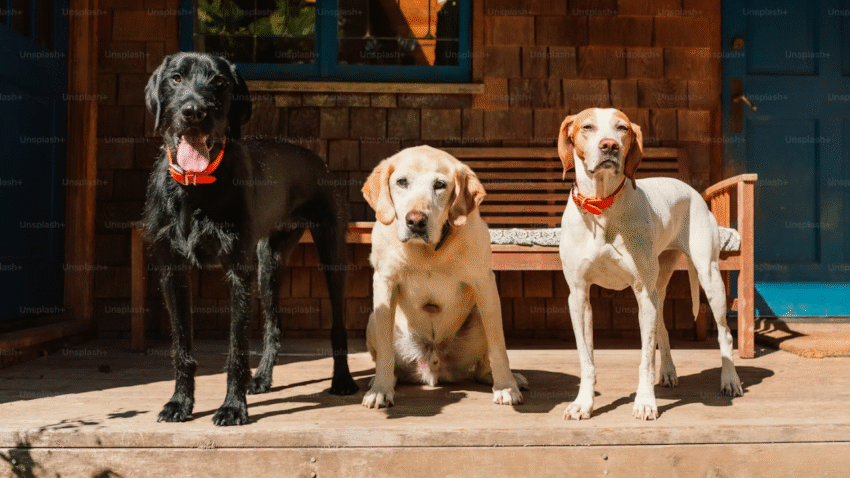Introduction
Noticing your dog has a sensitive or upset stomach? Vomiting, diarrhea, or a lack of appetite can be signs that something’s off—but before you rush to the vet, there are safe and natural ways to help soothe your pup’s digestive system at home. In this guide, you’ll learn how to treat your dog’s upset stomach naturally using gentle remedies, healing foods, and smart care techniques. Perfect for mild symptoms, these tips will help your dog feel better fast and prevent future tummy troubles.
Why Natural Upset Stomach Care Matters
Mild stomach issues in dogs are common, often caused by:
- Eating something unusual (like table scraps or grass)
- Minor food allergies or sensitivities
- Stress or anxiety
- Sudden diet changes
Natural remedies are useful for managing mild symptoms and supporting long-term digestive health. They help avoid unnecessary medications while promoting a gentle recovery.
However, always consult a vet if symptoms are severe, involve blood, or last more than 24–48 hours.
Step-by-Step Guide to Natural Upset Stomach Relief
Step 1: Withhold Food Temporarily
Let your dog’s stomach rest:
- Withhold food for 12–24 hours (only for adult dogs—do not fast puppies).
- Always provide fresh water to prevent dehydration.
- Watch for signs of improvement.
This pause allows inflammation in the gut to settle.
Step 2: Offer a Bland Diet
Once vomiting stops or diarrhea slows, feed a gentle, easy-to-digest meal:
- Boiled white rice + plain boiled chicken (no skin or seasoning)
- Mashed sweet potato or pumpkin (plain, canned or cooked)
- Bone broth for hydration and gut soothing
Feed small meals 2–3 times a day until stools return to normal.
Step 3: Add Natural Gut Soothers
Support recovery with safe natural additions:
- Plain canned pumpkin – high in fiber, helps regulate digestion
- Slippery elm powder – coats and calms the digestive tract
- Ginger (in tiny amounts) – can reduce nausea
- Probiotics – rebuild healthy gut bacteria
Use vet-approved supplements or ones formulated for pets.
Step 4: Keep Your Dog Hydrated
Upset stomachs can cause dehydration:
- Offer cool, clean water at all times
- Add unsalted bone broth or electrolyte water (pet-safe only)
- Ice cubes can also help encourage licking and hydration
Hydration is key to recovery.
Step 5: Monitor for Improvement
Track your dog’s progress:
- Monitor stool texture, vomiting, energy levels, and appetite
- Keep a log if symptoms persist or change
- Contact your vet if symptoms worsen or don’t improve within 48 hours
Common Mistakes to Avoid
1. Giving Human Medications
- Many OTC meds (like Pepto-Bismol or Tylenol) are toxic to dogs
- Always consult your vet before using anything not made for pets
2. Skipping the Bland Diet Phase
- Jumping back to regular kibble too soon can cause relapse
- Slowly reintroduce their normal food over 2–3 days
3. Ignoring Dehydration Signs
- Dry gums, sunken eyes, or lethargy may indicate dehydration
- If your dog refuses water, contact your vet immediately
4. Using Seasoned or Fatty Foods
- No butter, oils, salt, or spices—these can irritate the gut further
- Stick to plain, bland options only
5. Delaying Vet Care for Serious Symptoms
- Bloody diarrhea, frequent vomiting, or signs of pain are emergencies
- Natural remedies are best for mild, short-term issues
Extra Tips & Recommendations
Feed Smaller, More Frequent Meals
- This reduces stress on the digestive system
- Once they improve, divide daily meals into 3–4 smaller portions
Limit Activity Temporarily
- Allow your dog to rest and recover
- Avoid rough play or walks for a day or two
Prevent Future Upset
- Avoid sudden food changes
- Don’t allow table scraps or scavenging
- Use slow-feeder bowls if your dog eats too fast
Helpful Tools
- Measuring syringe for fluids or supplements
- Pet-safe bone broth or electrolyte mix
- Plain canned pumpkin
- Veterinary probiotics
Conclusion
Treating your dog’s upset stomach naturally is all about patience, simplicity, and gentle support. A bland diet, hydration, and gut-friendly supplements can work wonders for mild digestive issues. With early care and close observation, most dogs bounce back quickly. Just remember—when in doubt, your vet is the best backup. Keep things calm, natural, and nurturing, and your pup will be back to their happy, tail-wagging self in no time.
